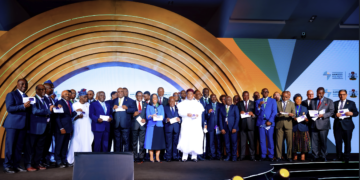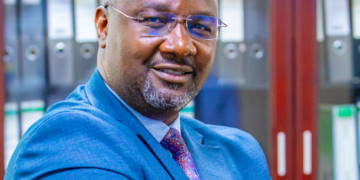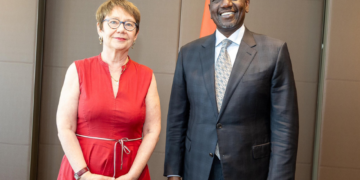Deputy Minister of Justice and Constitutional Development, John Jeffery has emphasized the government’s commitment to access to justice and the protection of vulnerable communities.
He said this in an addess to parliament during the Justice and Constitutional Development Department’s Budget Vote for the 2023/24 fiscal year.
Jeffery stressed the importance of service delivery and ensuring that all individuals have access to justice services, constitutional rights, and support when their rights are violated.
He acknowledged the challenges faced by the magistrates’ courts, including case backlogs, and outlined measures to address these issues, such as the National Facilities Project and the rationalization of the judicial establishment.
Jeffery also highlighted advancements in the protection of rights for vulnerable groups, including the recognition of nonverbal communications as oral evidence and the establishment of disability-centric courts.
In his speech, Deputy Minister John Jeffery also emphasized the government’s efforts to address gender-based violence (GBV) and improve support for survivors.
He highlighted the passing of three GBV Amendment Acts, which have significantly transformed the legal framework in the GBVF sector. The acts include the recognition of nonverbal communications as evidence, allowing witnesses with physical or emotional conditions to use demonstrations or gestures.
The Department of Justice has also upgraded numerous lower courts to provide reasonable accommodations for persons with disabilities, and plans to upgrade additional courts in the coming year.
Jeffery praised the National Prosecuting Authority’s expansion of Thuthuzela Care Centres (TCCs), which aim to provide support for survivors of sexual offenses, and announced a partnership with Mediclinic to establish the first TCC housed in a university residence.
Deputy Minister Jeffery addressed the challenges faced by the LGBTIQ+ community in South Africa, acknowledging historical and systemic discrimination that leads to violence and discrimination against this group. He highlighted the ongoing review of the National Intervention Strategy (NIS) on Sexual Orientation, Gender Identity, Expression, and Sex Characteristics Matters, which aims to meet the needs of the LGBTIQ+ community.
READ ALSO: Kenya pushes for African Nations to move away from the US Dollar
He emphasized the importance of prevention programs and partnerships with faith-based organizations, traditional leaders, and human rights organizations to address violence and unfair discrimination. He also mentioned the government’s commitment to decriminalizing sex work and the publication of the Criminal Law (Sexual Offences and Related Matters) Amendment Bill.
However, concerns raised by legal advisors have necessitated further engagement with stakeholders to draft provisions for the regulation of sex work before proceeding with the bill.






























































